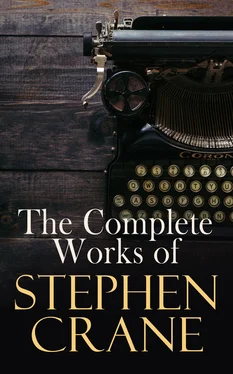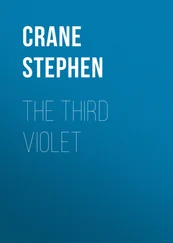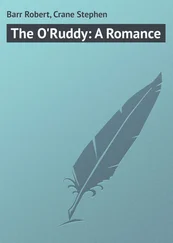"Yes, Pat," answered Coleman, "I did. It was all because of an unrequited affection, Patrick." The man stood near, a napkin over his arm. Coleman went on impressively. "The ways of the modern lover are strange. Now, I, Patrick, am a modern lover, and when, yesterday, the dagger of disappointment was driven deep into my heart, I immediately played poker as hard as I could and incidentally got loaded. This is the modern point of view. I understand on good authority that in old times lovers used to. languish. That is probably a lie, but at any rate we do not, in these times, languish to any great extent. We get drunk. Do you understand, Patrick?" The waiter was used to a harangue at Coleman's breakfast time. He placed his hand over his mouth and giggled. "Yessir."
"Of course," continued Coleman, thoughtfully. "It might be pointed out by uneducated persons that it is difficult to maintain a high standard of drunkenness for the adequate length of time, but in the series of experiments which I am about to make I am sure I can easily prove them to be in the wrong."
"I am sure, sir," said the waiter, "the young ladies would not like to be hearing you talk this way."
"Yes; no doubt, no doubt. The young ladies have still quite medieval ideas. They don't understand. They still prefer lovers to languish."
"At any rate, sir, I don't see that your heart is sure enough broken. You seem to take it very easy. "
"Broken! " cried Coleman. "Easy? Man, my heart is in fragments. Bring me another small bottle."
Table of Contents
Six weeks later, Coleman went to the office of the proprietor of the Eclipse. Coleman was one of those smooth-shaven old-young men who wear upon some occasions a singular air of temperance and purity. At these times, his features lost their quality of worldly shrewdness and endless suspicion and bloomed as the face of some innocent boy. It then would be hard to tell that he had ever encountered even such a crime as a lie or a cigarette. As he walked into the proprietor's office he was a perfect semblance of a fine, inexperienced youth. People usually concluded this change was due to a Turkish bath or some other expedient of recuperation, but it was due probably to the power of a physical characteristic.
"Boss in?" said Coleman.
"Yeh," said the secretary, jerking his thumb toward an inner door. In his private office, Sturgeon sat on the edge of the table dangling one leg and dreamily surveying the wall. As Coleman entered he looked up quickly. "Rufus," he cried, "you're just the man I wanted to see. I've got a scheme. A great scheme." He slid from the table and began to pace briskly to and fro, his hands deep in his trousers' pockets, his chin sunk in his collar, his light blue eyes afire with interest. "Now listen. This is immense. The Eclipse enlists a battalion of men to go to Cuba and fight the Spaniards under its own flag-the Eclipse flag. Collect trained officers from here and there-enlist every young devil we see-drill 'em—best rifles-loads of ammunition- provisions-staff of doctors and nurses -a couple of dynamite guns-everything complete best in the world. Now, isn't that great? What's the matter with that now? Eh? Eh? Isn't that great? It's great, isn't it? Eh? Why, my boy, we'll free-"
Coleman did not seem to ignite. "I have been arrested four or five times already on fool matters connected with the newspaper business," he observed, gloomily, "but I've never yet been hung. I think your scheme is a beauty."
Sturgeon paused in astonishment. "Why, what happens to be the matter with you? What are you kicking about?"
Coleman made a slow gesture. "I'm tired," he answered. "I need a vacation."
"Vacation!" cried Sturgeon. "Why don't you take one then?"
"That's what I've come to see you about. I've had a pretty heavy strain on me for three years now, and I want to get a little rest."
"Well, who in thunder has been keeping you from it? It hasn't been me."
"I know it hasn't been you, but, of course, I wanted the paper to go and I wanted to have my share in its success, but now that everything is all right I think I might go away for a time if you don't mind."
"Mind! " exclaimed Sturgeon falling into his chair and reaching for his check book. "Where do you want to go? How long do you want to be gone? How much money do you want?"
"I don't want very much. And as for where I want to go, I thought I might like to go to Greece for a while."
Sturgeon had been writing a check. He poised his pen in the air and began to laugh. "That's a queer place to go for a rest. Why, the biggest war of modern times—a war that may involve all Europe-is likely to start there at any moment. You are not likely to get any rest in Greece."
"I know that," answered Coleman. "I know there is likely to be a war there. But I think that is exactly what would rest me. I would like to report the war."
"You are a queer bird," answered Sturgeon deeply fascinated with this new idea. He had apparently forgotten his vision of a Cuban volunteer battalion. "War correspondence is about the most original medium for a rest I ever heard of."
"Oh, it may seem funny, but really, any change will be good for me now. I've been whacking at this old Sunday edition until I'm sick of it, and some,. times I wish the Eclipse was in hell."
That's all right," laughed the proprietor of the Eclipse. "But I still don't see how you 'are going to get any vacation out of a war that will upset the whole of Europe. But that's your affair. If you want to become the chief correspondent in the field in case of any such war, why, of course, I would be glad to have you. I couldn't get anybody better. But I don't see where your vacation comes in."
"I'll take care of that," answered Coleman. "When I take a vacation I want to take it my own way, and I think this will be a vacation because it will be different -don't you see-different?"
"No, I don't see any sense in it, but if you think that is the way that suits you, why, go ahead. How much money do you want?"
"I don't want much. just enough to see me through nicely."
Sturgeon scribbled on his check book and then ripped a check from it. "Here's a thousand dollars. Will that do you to start with?"
"That's plenty."
"When do you want to start?"
"To-morrow."
"Oh," said Sturgeon. "You're in a hurry." This impetuous manner of exit from business seemed to appeal to him. "To-morrow," he repeated smiling. In reality he was some kind of a poet using his millions romantically, spending wildly on a sentiment that might be with beauty or without beauty, according to the momentary vacillation. The vaguely-defined desperation in Coleman's last announcement appeared to delight him. He grinned and placed the points of his fingers together stretching out his legs in a careful attitude of indifference which might even mean disapproval. "To-morrow," he murmured teasingly.
"By jiminy," exclaimed Coleman, ignoring the other man's mood, "I'm sick of the whole business. I've got out a Sunday paper once a week for three years and I feel absolutely incapable of getting out another edition. It would be all right if we were running on ordinary lines, but when each issue is more or less of an attempt to beat the previous issue, it becomes rather wearing, you know. If I can't get a vacation now I take one later in a lunatic asylum."
"Why, I'm not objecting to your having a vacation. I'm simply marvelling at the kind of vacation you want to take. And 'to-morrow,' too, eh? " " Well, it suits me," muttered Coleman, sulkily.
"Well, if it suits you, that's enough. Here's your check. Clear out now and don't let me see you again until you are thoroughly rested, even if it takes a year." He arose and stood smiling. He was mightily pleased with himself. He liked to perform in this way. He was almost seraphic as he thrust the check for a thousand dollars toward Coleman.
Читать дальше












